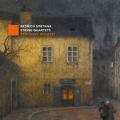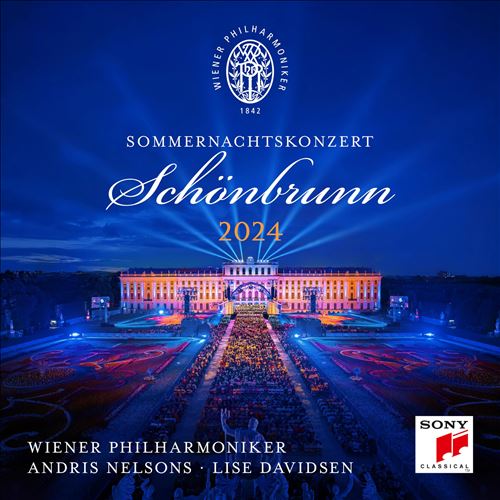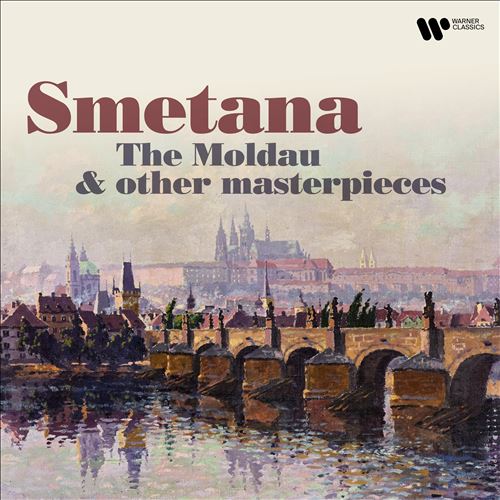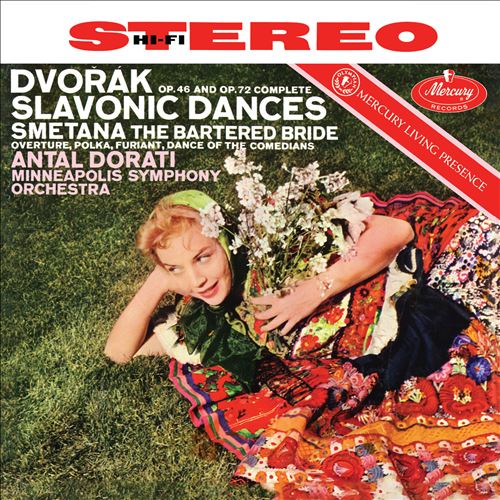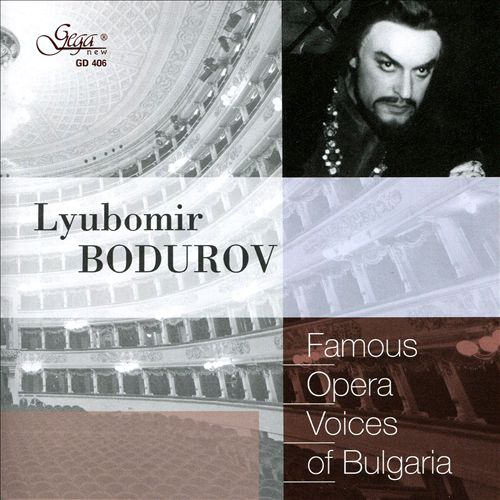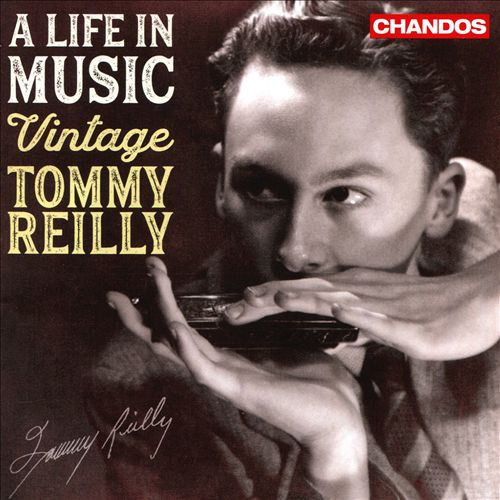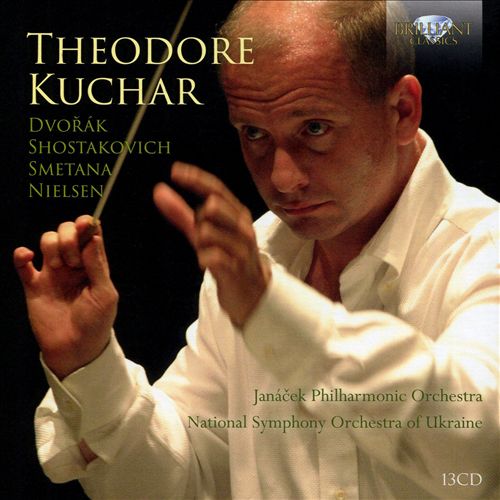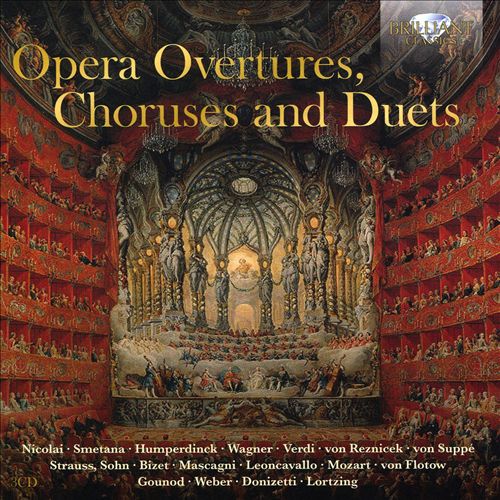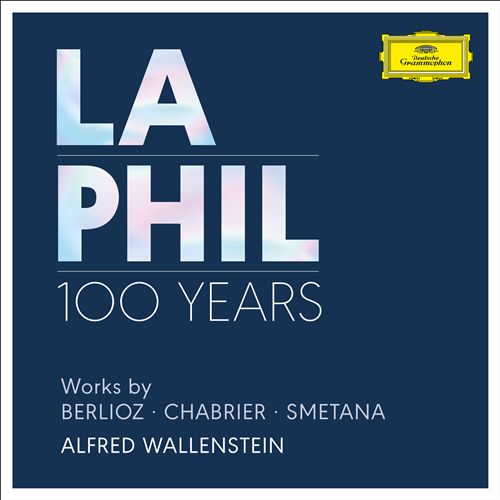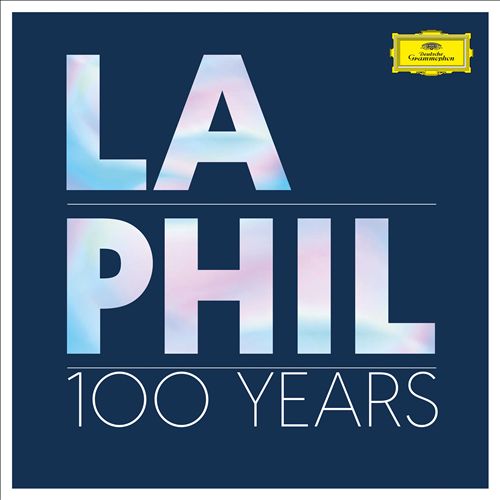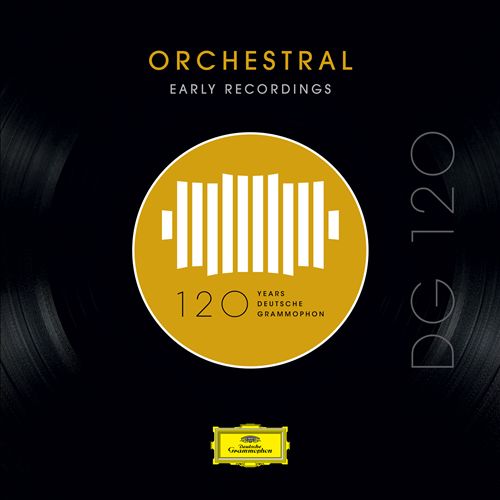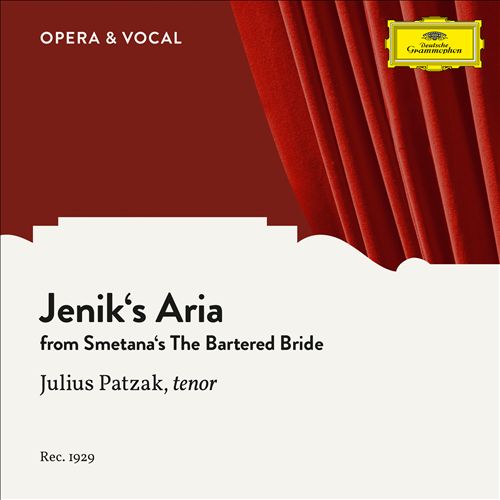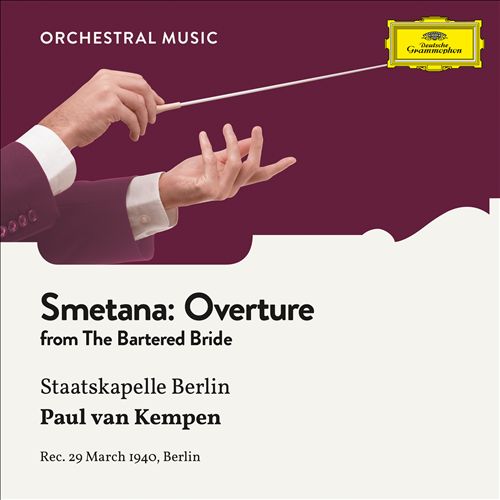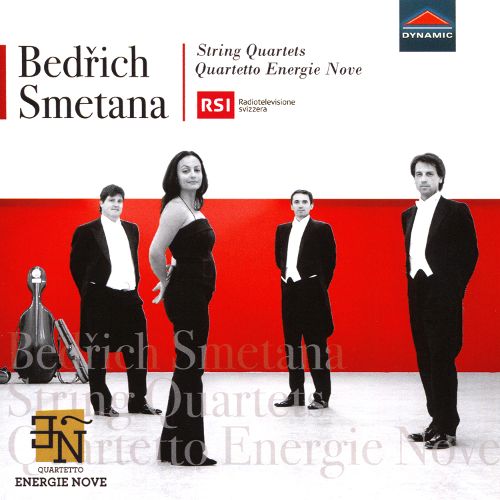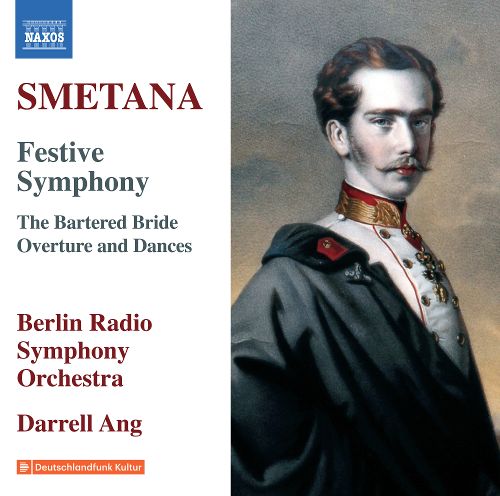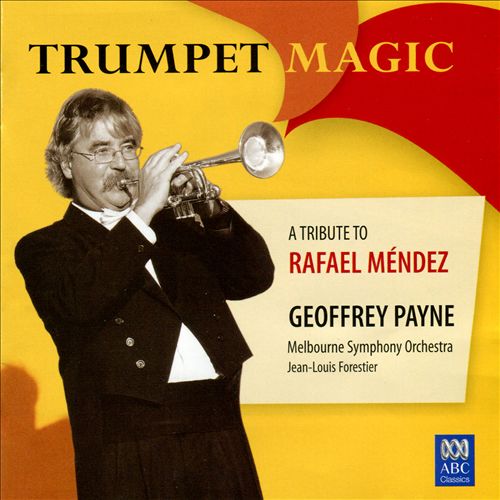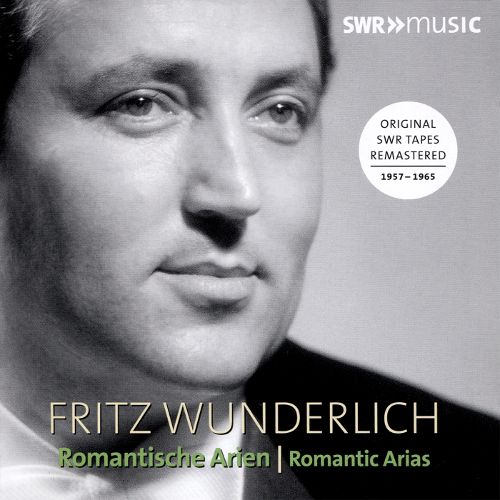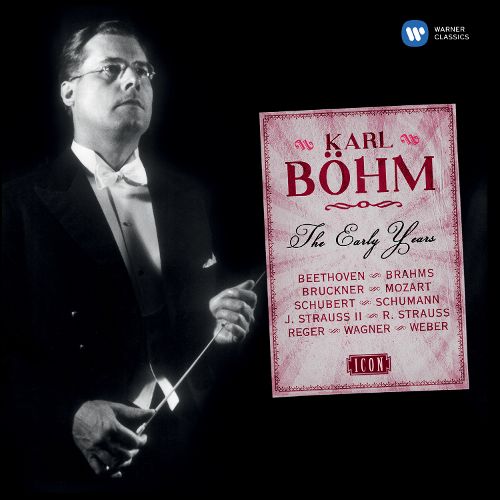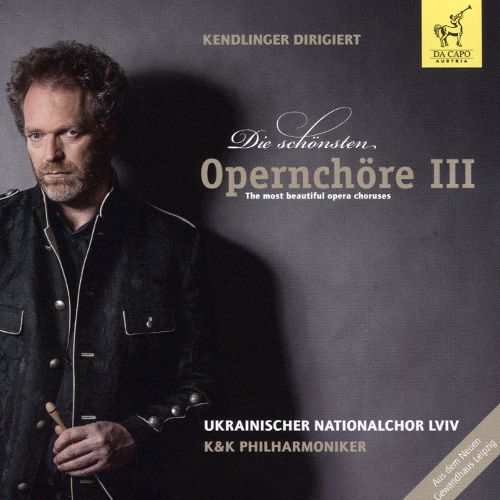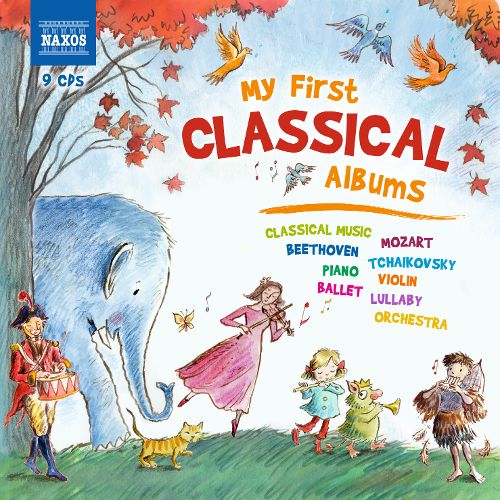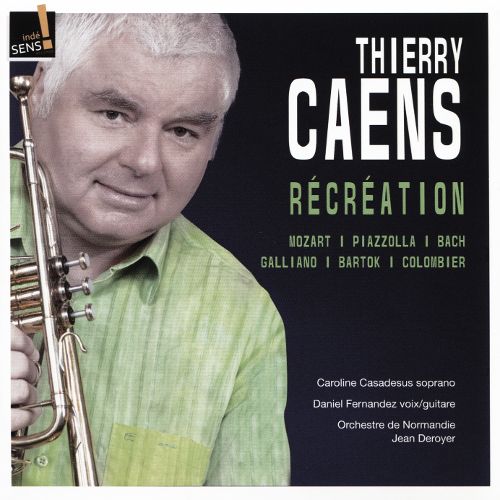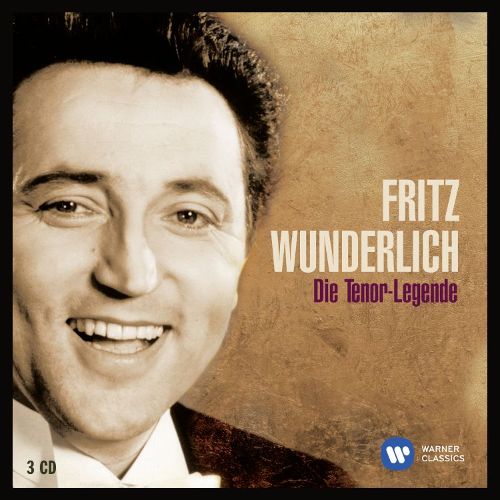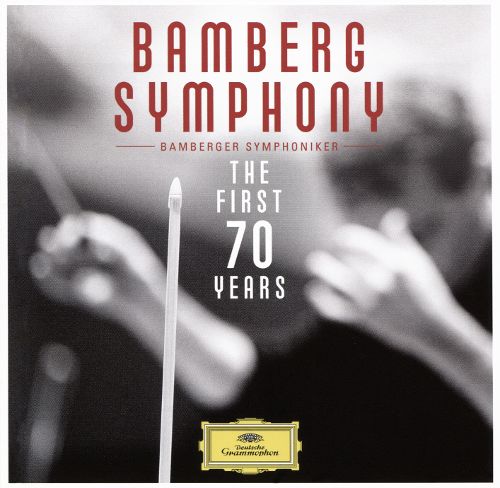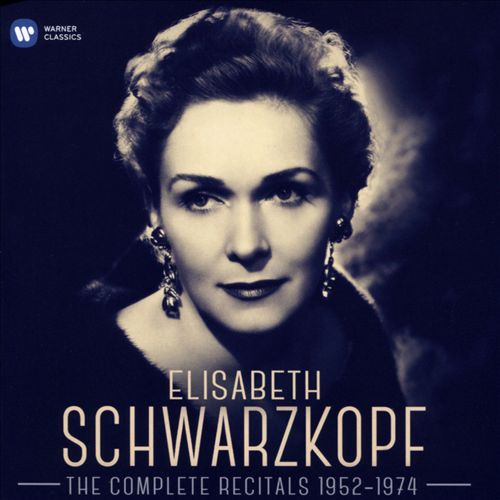Bedrich Smetana (베드르지흐 스메타나)
Prodaná nevesta
100
10,000
1,400
WORK INFO
작곡가: Bedrich Smetana (베드르지흐 스메타나)작곡년도: 1863 - 1870출판년도: 1872초연: May 30, 1866평균연주: 120:36악장1Ouverture6:302Act 1 : No. 2, Rejoice, let's be merry while the Lord grants us5:443Act 1 : No. 3, Should I ever happen to learn something like that about you3:484Act 1 : No. 4, While a mother's love means blessing5:135Act 1 : No. 5, Faithful love cannot be marredby any former pledge or promise3:046Act 1 : No. 6, As I'm saying my dear fellow, you have pledged your word5:037Act 1 : No. 7, Things like these can't be fixednull8Act 1 : No. 8, He's timid and not used to female societynull9Act 1 : No. 9a, You don't even suspect the hitch there's in itnull10Act 1 : No. 9b, And where everybody fails it is his luck to succeednull11Act 1 : No. 9c, Polka4:5112Act 2 : No. 10, Beer's no doubt a gift from Heaven4:4913Act 2 : No. 11, Furiant2:1814Act 2 : No. 12, My... my... mother dear sa... sa... sa... said to me3:1315Act 2 : No. 13, I know of a maiden fair whose love for you is boundless5:2416Act 2 : No. 14, Every man maintains his wife is bestnull17Act 2 : No. 15, I know a girl, she's got the money, duetnull18Act 2 : No. 16a, How could they believe I would ever sell my Marenka?3:3519Act 2 : No. 16b, Come inside, people! Listen to me!6:5520Act 2 : No. 16c, Is it really true that he renounced his sweetheart?null21Act 2 : No. 16d, Quite a bargain 'tis! He has for three golden gulden sold his sweetheart, Finalenull22Act 3 : No. 17, I can't get it off my mind, my life is at stake!3:5523Act 3 : No. 18, March of the Comedians2:2724Act 3 : No. 19, Dance of the Comedians (Skocna)5:0925Act 3 : No. 20a, We shall make a graceful little bear of you1:3326Act 3 : No. 20b, What? He does not want her?2:3927Act 3 : No. 20c, Well then, she's Marenka, she's your future wifenull28Act 3 : No. 21, Think it over, Marenka3:1529Act 3 : No. 22a, Oh, what a grief! what burning pain when a loving heart's deceived!6:0930Act 3 : No. 22b, That dream of love, how fair it was4:3031Act 3 : No. 23, Are you really so stubborn, dear, that you won't learn the truth?4:0832Act 3 : No. 24, Calm down, calm down, dear3:2933Act 3 : No. 25a, Now I shall call in your parentsnull34Act 3 : No. 25b, What have you decided, Marenka? Speak!5:5335Act 3 : No. 25c, Oh, he's a cunning man all right! I'm totally defeated!, Finalenull36Act 3 : No. 25d, Ha ha ha ha6:44The Bartered Bride (, The Sold Fiancée) is a comic opera in three acts by the Czech composer Bedřich Smetana, to a libretto by Karel Sabina. The opera is considered to have made a major contribution towards the development of Czech music. It was composed during the period 1863–66, and first performed at the Provisional Theatre, Prague, on 30 May 1866 in a two-act format with spoken dialogue. Set in a country village and with realistic characters, it tells the story of how, after a late surprise revelation, true love prevails over the combined efforts of ambitious parents and a scheming marriage broker. The opera was not immediately successful, and was revised and extended in the following four years. In its final version, premiered in 1870, it gained rapid popularity and eventually became a worldwide success. Czech national opera until this time had been represented only by a number of minor, rarely performed works. This opera, Smetana's second, was part of his quest to create a truly Czech operatic genre. Smetana's musical treatment makes considerable use of traditional Bohemian dance forms such as the polka and furiant, although he largely avoids the direct quotation of folksong. He nevertheless created music which was accurately folk-like, and is considered by Czechs to be quintessentially Czech in spirit. The overture, often played as a concert piece independently from the opera, was, unusually, composed before almost any of the other music had been written. After a performance at the Vienna Music and Theatre Exhibition of 1892, the opera achieved international recognition. It was performed in Chicago in 1893, London in 1895 and reached New York in 1909, subsequently becoming the first, and for many years the only, Czech opera in the general repertory. Many of these early international performances were in German, under the title Die verkaufte Braut, and the German-language version continues to be played and recorded. A German film of the opera was made in 1932 by Max Ophüls.
Until the middle 1850s Bedřich Smetana was known in Prague principally as a teacher, pianist and composer of salon pieces. His failure to achieve wider recognition in the Bohemian capital led him to depart in 1856 for Sweden, where he spent the next five years. During this period he extended his compositional range to large-scale orchestral works in the descriptive style championed by Franz Liszt and Richard Wagner. Liszt was Smetana's long-time mentor; he had accepted a dedication of the latter's Opus 1: Six Characteristic Pieces for Piano in 1848, and had encouraged the younger composer's career since then. In September 1857 Smetana visited Liszt in Weimar, where he met Peter Cornelius, a follower of Liszt's who was working on a comic opera, Der Barbier von Bagdad. Reportedly, their discussions centred on the need to create a modern style of comic opera, as a counterbalance to Wagner's new form of music drama. A comment was made by the Viennese conductor Johann von Herbeck to the effect that Czechs were incapable of making music of their own, a remark which Smetana took to heart: "I swore there and then that no other than I should beget a native Czech music."From WIKIPEDIA
RELEASED ALBUMS
-
Bedrich Smetana: String QuartetsMarch 28, 2025
-
Sommernachtskonzert Schönbrunn 2024August 30, 2024
-
Smetana: The Moldau & Other MasterpiecesMarch 1, 2024
-
Dvorák: Slavonic Dances; Smetana: The Bartered BrideJune 23, 2023
-
Sommernachts Konzert 2022August 26, 2022
-
Famous Opera Voices of Bulgaria: Lyubomir BodurovOctober 18, 2019
-
A Life in Music: Vintage Tommy ReillyAugust 23, 2019
-
Dvorák, Shostakovich, Smetana, NielsenMay 3, 2019
-
Opera Overtures, Choruses and DuetsApril 5, 2019
-
Berlioz, Chabrier, SmetanaMarch 22, 2019
-
LA PHIL: 100 YearsMarch 22, 2019
-
DG 120: Orchestral, Early RecordingsOctober 5, 2018
-
Jenik's Aria from Smetana's The Bartered BrideSeptember 21, 2018
-
Smetana: Overture from The Bartered BrideAugust 3, 2018
-
Bedřich Smetana: String QuartetsJune 15, 2018
-
111 Opera MasterpiecesMay 11, 2018
-
Autobahn Classics: Classical Music Remastered for a Noisy Environment, Vol. 8May 11, 2018
-
Autobahn Classics: Classical Music Remastered for a Noisy Environment, Vol. 2May 11, 2018
-
I Like the Orchestra! Menuetto Kids: Classical Music for ChildrenMay 11, 2018
-
Smetana: Festive Symphony; The Bartered Bride Overture and DancesMay 11, 2018
-
Trumpet Magic: A Tribute to Rafael MéndezJanuary 17, 2018
-
Romantische Arien (Romantic Arias)June 9, 2017
-
Karl Böhm: The Early YearsJune 2, 2017
-
Our Band Heritage, Vol. 30: Cartoon ClassicsFebruary 3, 2017
-
Die Schönsten Opernchöre III2017
-
My First Classical Albums [Naxos]October 14, 2016
-
Récréation: Mozart, Piazzolla, Bach, Galilano, Bartok, ColombierOctober 14, 2016
-
Fritz Wunderlich: Die Tenor-LegendeOctober 7, 2016
-
Bamberg Symphony: The First 70 YearsApril 29, 2016
-
Elisabeth Schwarzkopf: The Complete RecitalsNovember 13, 2015
FEATURED MOVIES
-
 05:54스메타나: 팔려간 신부 Dance of the Comedians (Skocna)
05:54스메타나: 팔려간 신부 Dance of the Comedians (Skocna) -
 06:26스메타나: 팔려간 신부 Dance of the ComediansMar. 21, 2010Spring Showcase Concert at the California Center for the Arts, Escondido
06:26스메타나: 팔려간 신부 Dance of the ComediansMar. 21, 2010Spring Showcase Concert at the California Center for the Arts, Escondido -
 01:59스메타나: 팔려간 신부 Furiant12-15-12Southern California Youth Philharmonic Winter Concert, Concordia University
01:59스메타나: 팔려간 신부 Furiant12-15-12Southern California Youth Philharmonic Winter Concert, Concordia University -
 02:38스메타나: 팔려간 신부 Faithful love1981National Theatre Prague
02:38스메타나: 팔려간 신부 Faithful love1981National Theatre Prague -
 53:05스메타나: 팔려간 신부 Act 3
53:05스메타나: 팔려간 신부 Act 3 -
 05:51스메타나: 팔려간 신부 Dance of the Comedians1/31/2013Bridges Hall of Music Pomona College
05:51스메타나: 팔려간 신부 Dance of the Comedians1/31/2013Bridges Hall of Music Pomona College -
 04:51스메타나: 팔려간 신부 PolkaMar. 21, 2010California Center for the Arts, Escondido
04:51스메타나: 팔려간 신부 PolkaMar. 21, 2010California Center for the Arts, Escondido -
 05:25스메타나: 팔려간 신부 Dance of the Comedians23.12.2013Slovenian Philharmonic, Ljubljana
05:25스메타나: 팔려간 신부 Dance of the Comedians23.12.2013Slovenian Philharmonic, Ljubljana -
 06:33스메타나: 팔려간 신부 Dance of the ComediansCenter Theater, California Center for The Arts, Escondido, California
06:33스메타나: 팔려간 신부 Dance of the ComediansCenter Theater, California Center for The Arts, Escondido, California -
 05:39스메타나: 팔려간 신부 Dance of the Comedians2012.06.17Academy of Performing Arts, The University of Waikato ,Hamilton, NZ
05:39스메타나: 팔려간 신부 Dance of the Comedians2012.06.17Academy of Performing Arts, The University of Waikato ,Hamilton, NZ -
 04:14스메타나: 팔려간 신부 Dance of the Comedians2012Orfeo Music Festival
04:14스메타나: 팔려간 신부 Dance of the Comedians2012Orfeo Music Festival -
 06:18스메타나: 팔려간 신부 Dance of the ComediansOctober 24, 2010Bob Boldrick Theater, Carson City, Nevada
06:18스메타나: 팔려간 신부 Dance of the ComediansOctober 24, 2010Bob Boldrick Theater, Carson City, Nevada -
 03:10스메타나: 팔려간 신부 Dance of the ComediansMay 7th, 2011
03:10스메타나: 팔려간 신부 Dance of the ComediansMay 7th, 2011 -
 04:57스메타나: 팔려간 신부 Dance of the Comedians
04:57스메타나: 팔려간 신부 Dance of the Comedians -
 05:31스메타나: 팔려간 신부 Beer's no doubt a gift from Heaven1981National Theatre Prague
05:31스메타나: 팔려간 신부 Beer's no doubt a gift from Heaven1981National Theatre Prague
ALBUM MUSIC
WORKS SHOUTS


